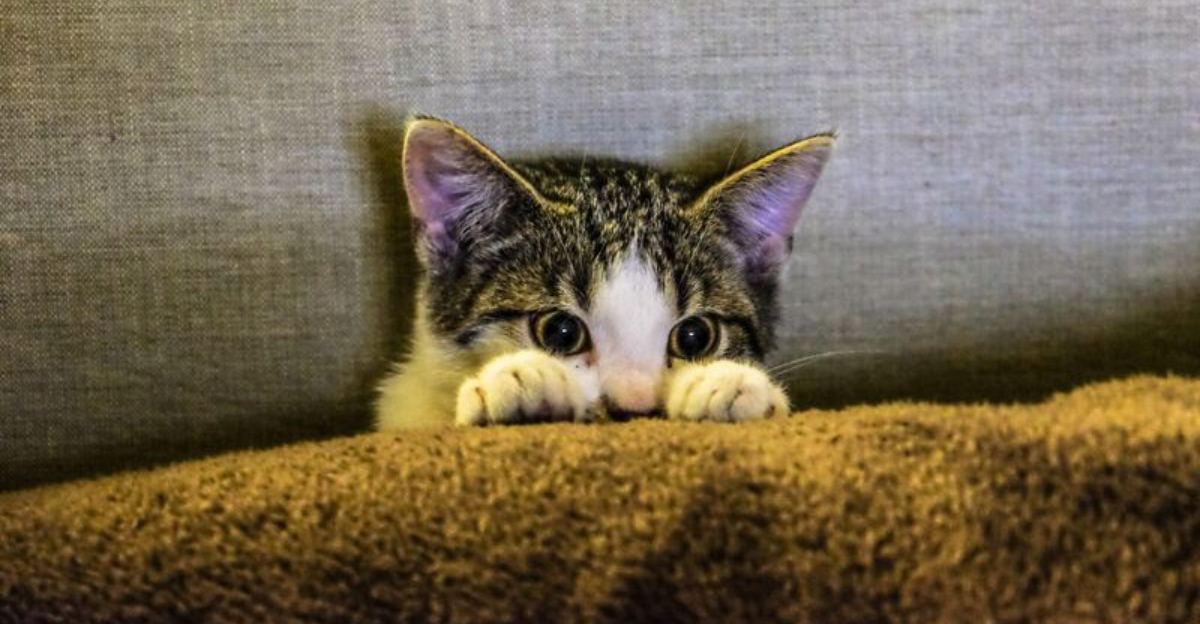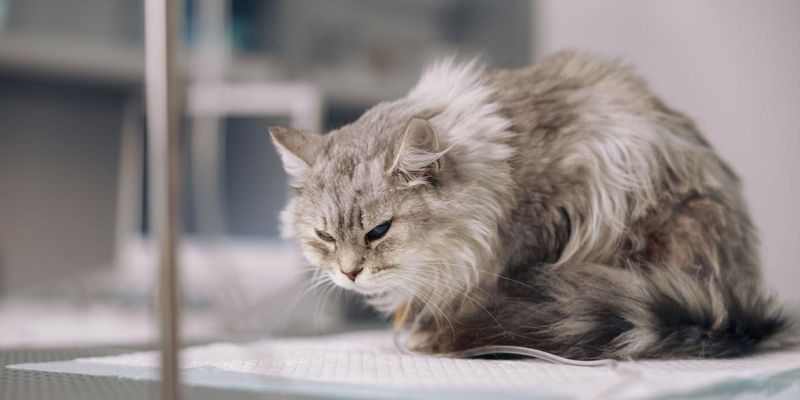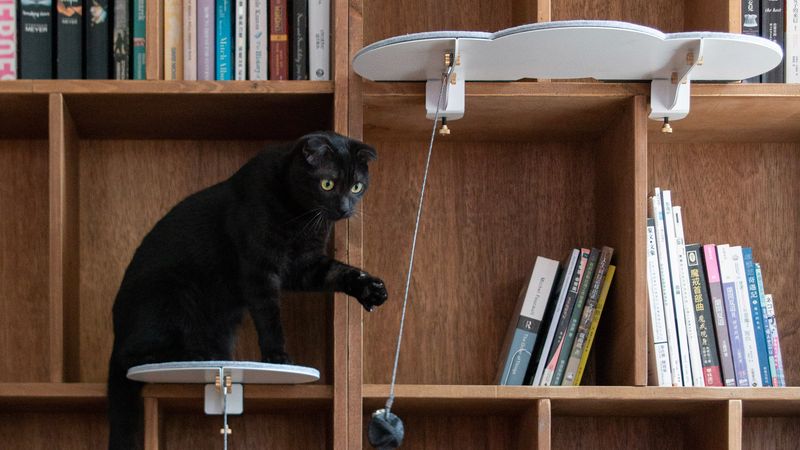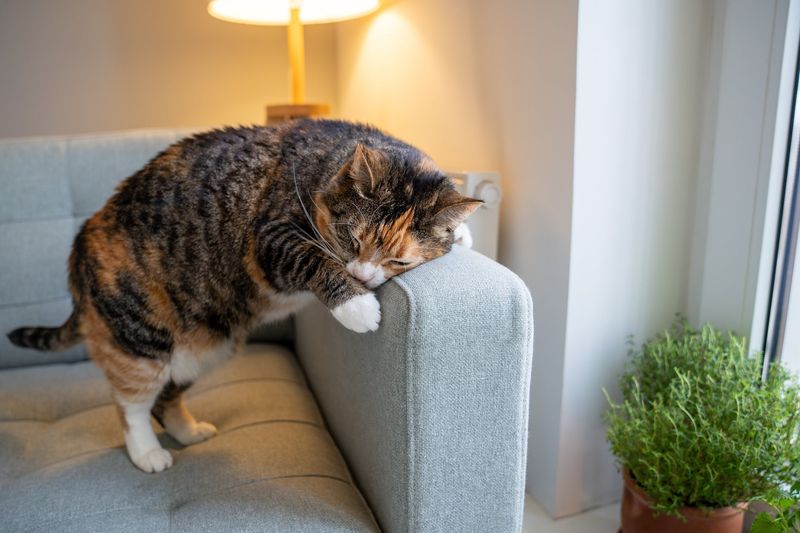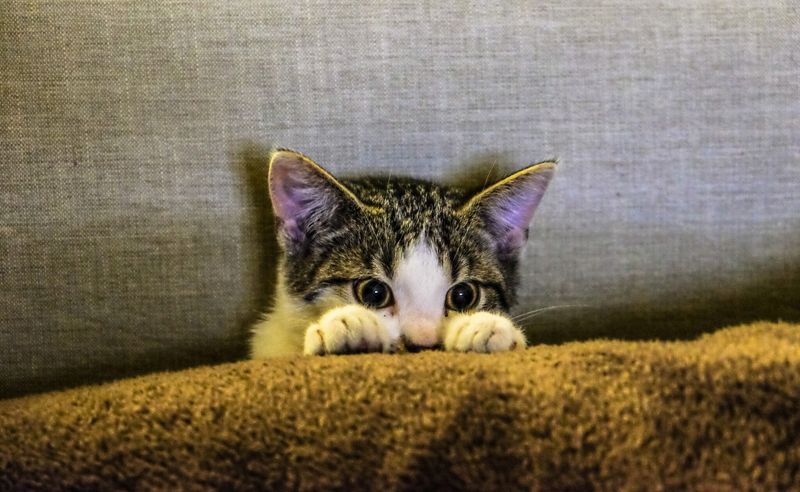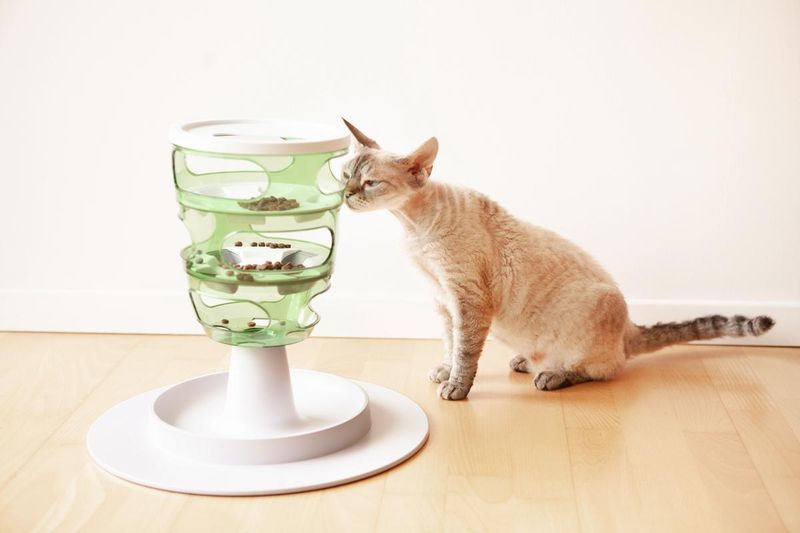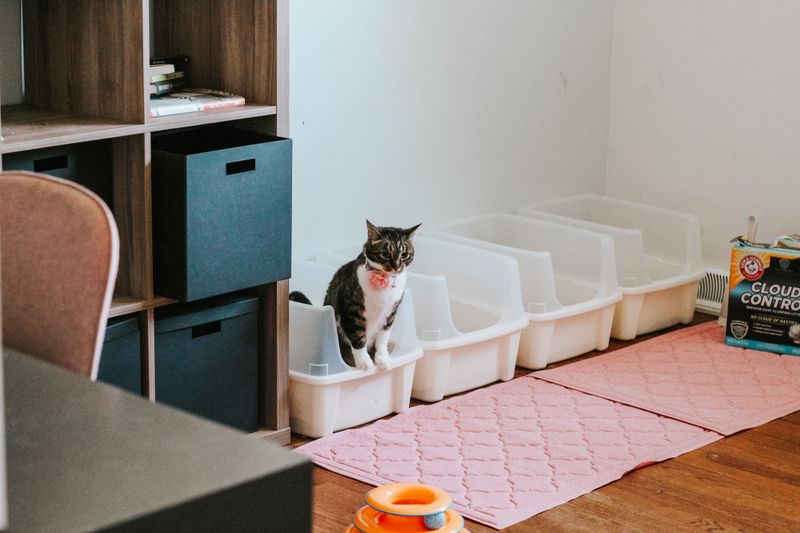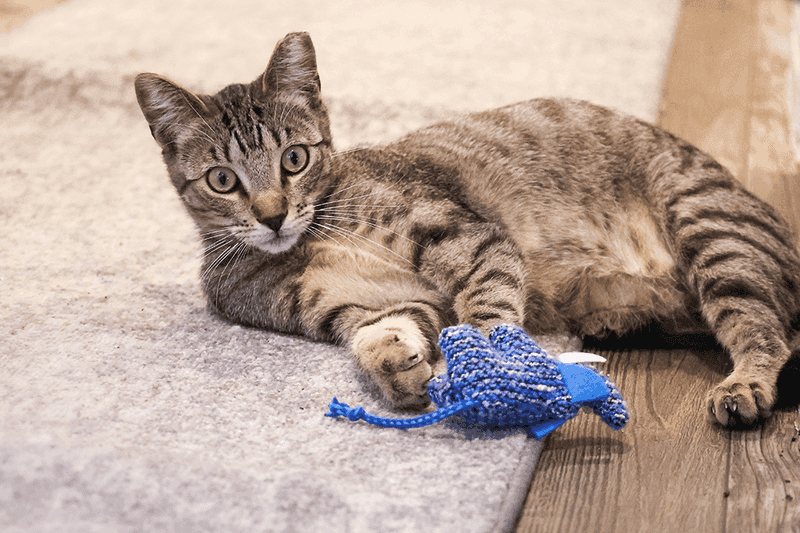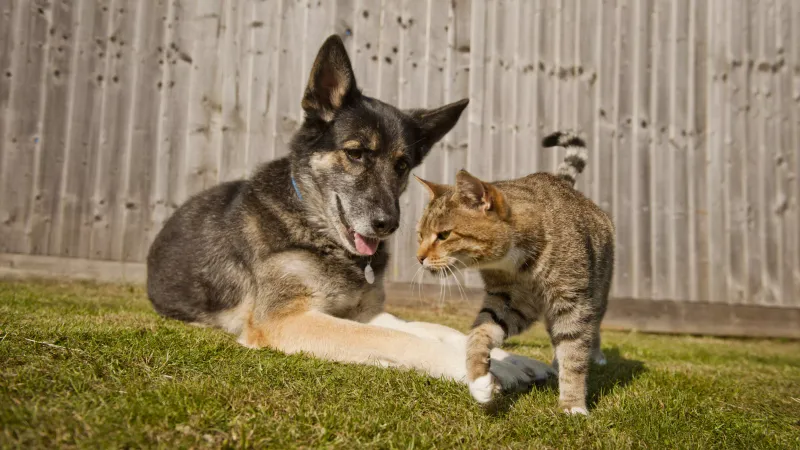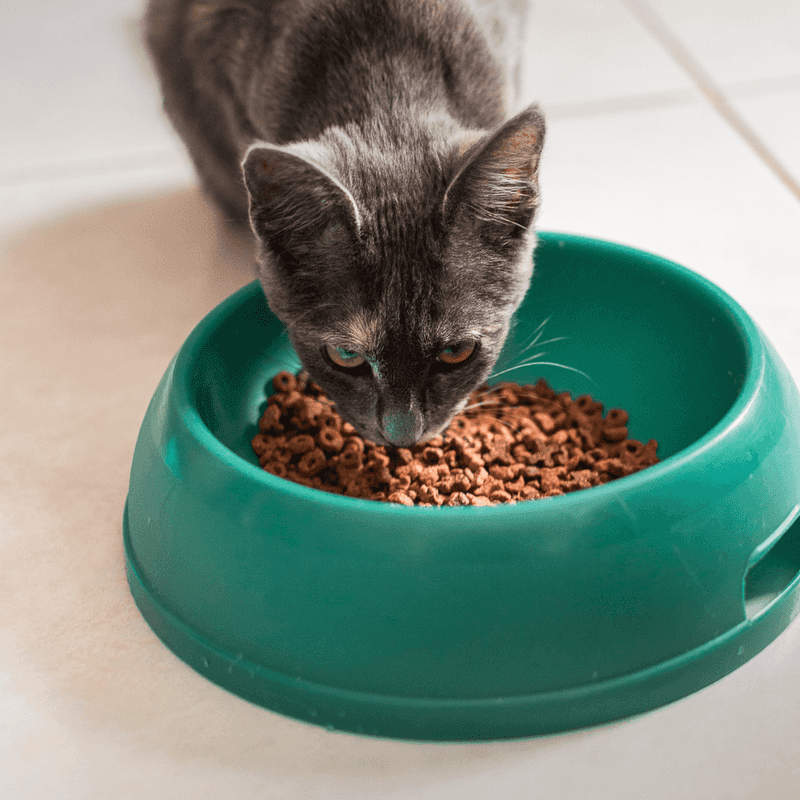📖 Table of Content:
- 1. Forcing Too Much Physical Attention
- 2. Not Providing Enough Vertical Space
- 3. Punishing Natural Behaviors
- 4. Sudden Changes to the Environment
- 5. Ignoring Enrichment Needs
- 6. Overcrowded Litter Box Situations
- 7. Skipping Regular Playtime
- 8. Bringing Home Incompatible Pets
- 9. Inconsistent Feeding Schedules
Cats might seem independent and aloof, but they have complex emotional needs just like us. Many cat owners accidentally harm their pet’s mental well-being without realizing it. Understanding how everyday habits affect your feline friend can make a huge difference in their happiness and behavior. Let’s explore some common mistakes that might be hurting your cat’s mental health.
1. Forcing Too Much Physical Attention
Cats value choice and consent when it comes to cuddles. Picking up your cat when they don’t want to be held or continuing to pet them after they’ve shown signs of discomfort creates anxiety and stress. Watch for warning signals like tail flicking, skin twitching, or ears flattening.
These are your cat’s way of saying “enough.” Respect these boundaries to build trust. Allow your cat to approach you for affection on their terms. This builds a healthier relationship where your pet feels safe and respected rather than trapped or controlled.
2. Not Providing Enough Vertical Space
Climbing is in a cat’s nature—they thrive when they can perch up high and oversee their environment. Without shelves, cat trees, or other vertical access points, cats may feel overwhelmed, especially in crowded or busy households.
Without these high perches, they can’t fulfill their instinctual need to monitor their surroundings safely. Cat trees, wall shelves, or cleared bookcase tops create the elevated havens your cat craves. Even in small spaces, vertical options dramatically improve your cat’s confidence and reduce stress-related behaviors.
3. Punishing Natural Behaviors
Scolding your cat for scratching furniture or jumping on counters creates confusion and anxiety. These behaviors aren’t acts of rebellion—they’re hardwired feline instincts that need proper outlets. Cats scratch to maintain claw health and mark territory.
Jumping and climbing fulfill their need for exploration and safety. Punishment doesn’t teach alternatives; it only creates fear. Instead of yelling or spraying water, redirect these behaviors to appropriate options like scratching posts or cat shelves. This positive approach preserves your cat’s mental health while protecting your belongings.
4. Sudden Changes to the Environment
Rearranging furniture without a transition time can trigger serious anxiety in cats. They rely on environmental consistency to feel secure and in control of their territory. Moving homes, adding new pets, or even changing their litter brand abruptly can cause stress-related behaviors like inappropriate elimination, excessive grooming, or hiding.
Cats thrive on routine and predictability. Gradual transitions work best for feline minds. When changes are necessary, maintain some familiar items in consistent locations and give your cat extra attention during adjustment periods. This helps preserve their sense of security during unsettling times.
5. Ignoring Enrichment Needs
Mental stimulation is just as important as physical care for cats. Many owners provide food and shelter but forget that cats need daily mental challenges to prevent boredom and depression. Without proper enrichment, indoor cats often develop problematic behaviors like excessive meowing, destructiveness, or aggression.
Their clever minds need regular exercise through play, puzzles, and exploration. Rotate toys weekly to maintain interest. Food puzzles, window perches, and interactive play sessions satisfy hunting instincts and provide crucial mental stimulation. Just 10-15 minutes of engaged play daily can dramatically improve your cat’s mood and behavior.
6. Overcrowded Litter Box Situations
Dirty or inadequate litter box setups create serious psychological stress for cats. Many owners don’t realize that cats are naturally clean animals who become anxious when forced to use soiled facilities. The general rule is one box per cat plus one extra, yet many households provide just one box for multiple cats.
This creates territory conflicts and anxiety around elimination needs. Location matters too—boxes placed in noisy, high-traffic areas make cats feel vulnerable during private moments. Clean boxes in quiet, accessible locations allow cats to follow their natural instincts, significantly reducing stress-related behavior problems.
7. Skipping Regular Playtime
Cats have strong predatory instincts that need healthy outlets through play. Without regular play sessions, these natural drives become frustrated, leading to depression or destructive behaviors. Many owners assume independent cats entertain themselves, but domestic cats rely on humans to provide hunting simulations.
The mental benefits of play are as important as the physical exercise. Two or three short play sessions daily satisfy hunting instincts and strengthen your bond. Wand toys that mimic prey movements are particularly effective. After play, cats experience a natural satisfaction that reduces anxiety and improves sleep quality.
8. Bringing Home Incompatible Pets
Adding new pets without proper introduction protocols can traumatize your existing cat. Cats are territorial creatures who need careful, gradual introductions to new animal housemates. Forced interactions create lasting fear and anxiety.
Some cats never fully recover from poorly managed introductions, developing chronic stress that affects their health and behavior for years. Proper introductions take weeks, not days. Separate spaces, scent swapping, and controlled visual exposure should precede any direct contact. Respecting your cat’s pace during this process preserves their sense of security and prevents territorial aggression or fearful withdrawal.
9. Inconsistent Feeding Schedules
Unpredictable meal times create anxiety for cats who thrive on routine. The uncertainty of when food will appear triggers stress responses and can lead to behavioral problems like aggression or excessive vocalization. Free-feeding isn’t always the answer either. Many cats benefit from regular meal times that create predictable daily rhythms.
This consistency helps cats feel secure in their environment. Automatic feeders can help maintain schedules when your routine varies. Whatever system you choose, consistency matters most. Regular feeding times reduce food anxiety and help prevent stress-related digestive issues that many cats develop when meals become unpredictable.
